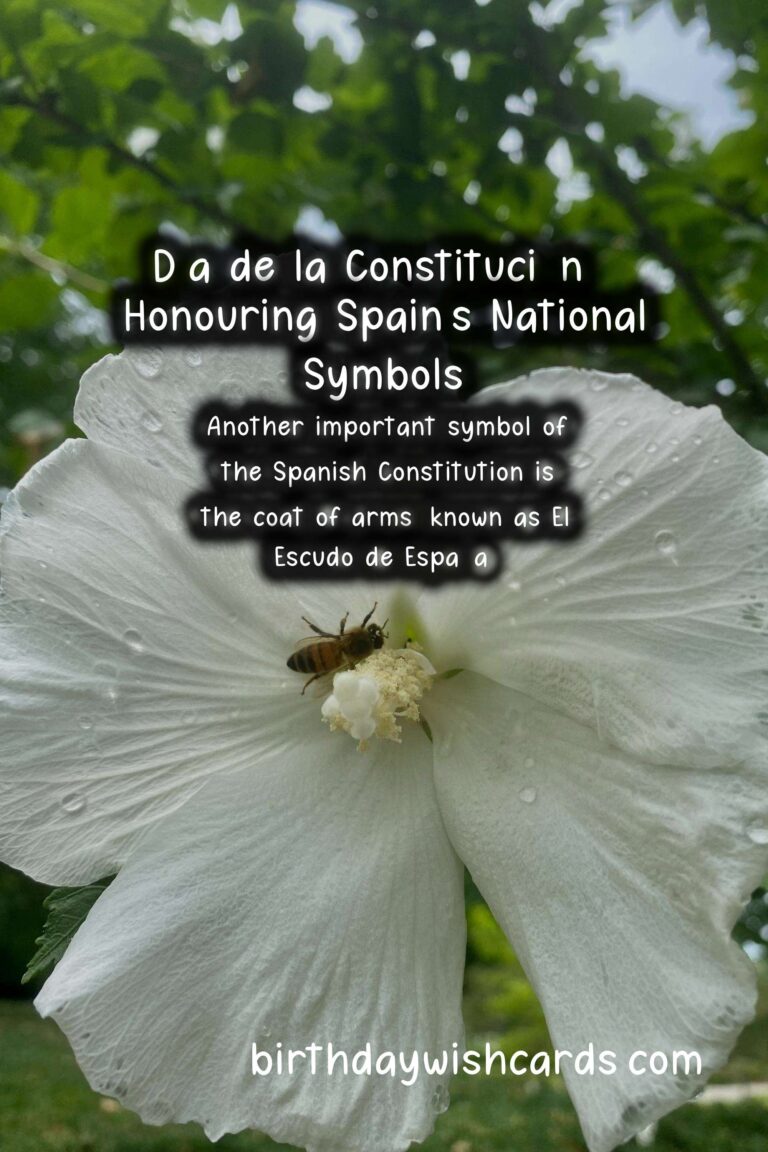 December 6 is an important day for Spain, as it marks the celebration of Día de la Constitución or Constitution Day. This public holiday commemorates the anniversary of the approval of the Spanish Constitution in 1978. As one of the most significant events in Spanish history, Día de la Constitución is a time for people to reflect on the country’s national symbols, values, and principles that have shaped its identity. The Spanish Constitution, also known as La Carta Magna, was established as a result of Spain’s transition from a dictatorship to a democratic country. It was drafted by a committee of representatives from various political parties, including both left-wing and right-wing ideologies. The Constitution, which is divided into 10 parts and 169 articles, provides the framework for Spain’s political organization and sets out the basic rights and duties of its citizens. One of the most important symbols of the Spanish Constitution is the Spanish flag, also known as la Rojigualda. This flag, with its prominent red and yellow stripes, has been used as a symbol of Spain since the 18th century. The colors of the Spanish flag are said to represent the sun and the blood spilled by the Spanish people throughout history. Another important symbol of the Spanish Constitution is the coat of arms, known as El Escudo de España. The coat of arms features a shield with the emblems of the different regions of Spain, which symbolizes the unity and diversity of the country. A key tradition during Día de la Constitución is the public reading of the Constitution by members of the Spanish Parliament. This event takes place in front of the country’s representatives, including members of the Royal Family. It serves as a reminder of the principles and values set out in the Constitution and the importance of upholding them in modern-day Spain. Aside from its national symbols, Día de la Constitución is also celebrated through various cultural events and activities throughout the country. Many cities and towns hold parades and concerts to commemorate the day and to promote national unity and solidarity. Schools also play a significant role in emphasizing the importance of the Constitution by educating students on its history and significance. Día de la Constitución is often seen as a time to remember and celebrate the freedoms and rights that are guaranteed to all Spanish citizens under the Constitution. These include the rights to freedom of expression, assembly, and association, as well as the right to vote and participate in the democratic process. On Día de la Constitución, it is not uncommon to see Spaniards proudly displaying their national symbols and attending celebrations to honor their country’s history and achievements.
December 6 is an important day for Spain, as it marks the celebration of Día de la Constitución or Constitution Day. This public holiday commemorates the anniversary of the approval of the Spanish Constitution in 1978. As one of the most significant events in Spanish history, Día de la Constitución is a time for people to reflect on the country’s national symbols, values, and principles that have shaped its identity. The Spanish Constitution, also known as La Carta Magna, was established as a result of Spain’s transition from a dictatorship to a democratic country. It was drafted by a committee of representatives from various political parties, including both left-wing and right-wing ideologies. The Constitution, which is divided into 10 parts and 169 articles, provides the framework for Spain’s political organization and sets out the basic rights and duties of its citizens. One of the most important symbols of the Spanish Constitution is the Spanish flag, also known as la Rojigualda. This flag, with its prominent red and yellow stripes, has been used as a symbol of Spain since the 18th century. The colors of the Spanish flag are said to represent the sun and the blood spilled by the Spanish people throughout history. Another important symbol of the Spanish Constitution is the coat of arms, known as El Escudo de España. The coat of arms features a shield with the emblems of the different regions of Spain, which symbolizes the unity and diversity of the country. A key tradition during Día de la Constitución is the public reading of the Constitution by members of the Spanish Parliament. This event takes place in front of the country’s representatives, including members of the Royal Family. It serves as a reminder of the principles and values set out in the Constitution and the importance of upholding them in modern-day Spain. Aside from its national symbols, Día de la Constitución is also celebrated through various cultural events and activities throughout the country. Many cities and towns hold parades and concerts to commemorate the day and to promote national unity and solidarity. Schools also play a significant role in emphasizing the importance of the Constitution by educating students on its history and significance. Día de la Constitución is often seen as a time to remember and celebrate the freedoms and rights that are guaranteed to all Spanish citizens under the Constitution. These include the rights to freedom of expression, assembly, and association, as well as the right to vote and participate in the democratic process. On Día de la Constitución, it is not uncommon to see Spaniards proudly displaying their national symbols and attending celebrations to honor their country’s history and achievements. 
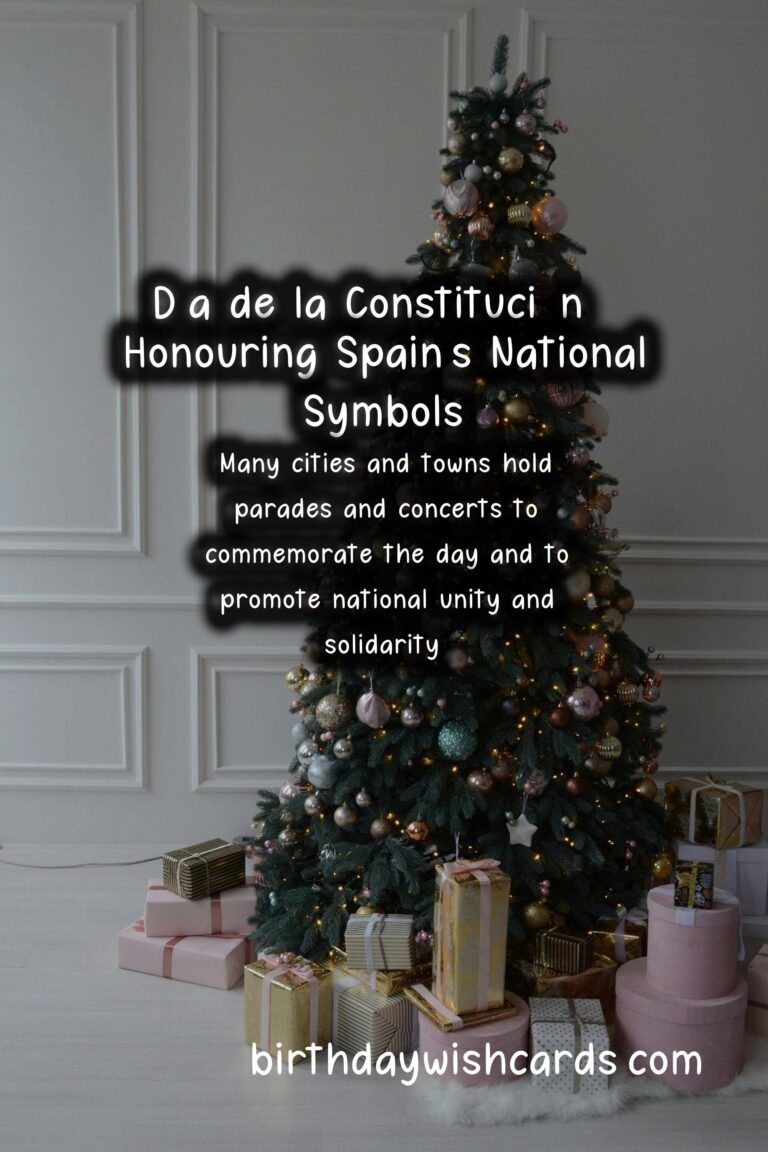
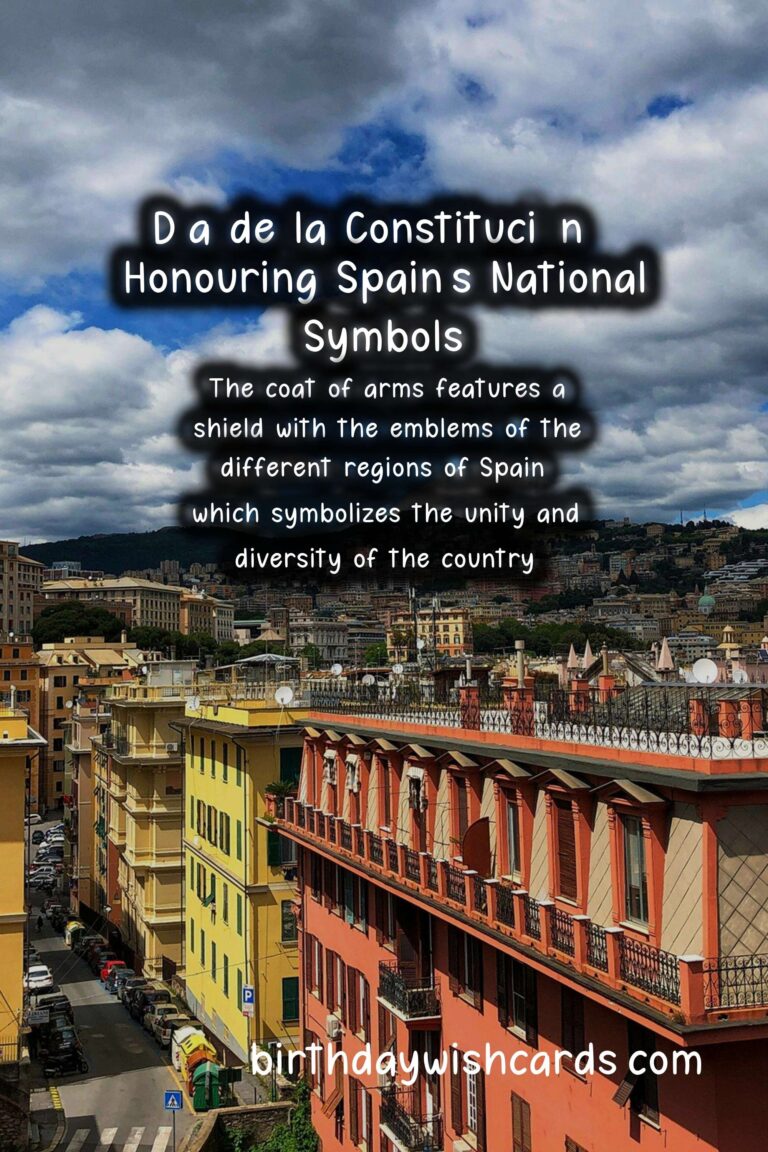
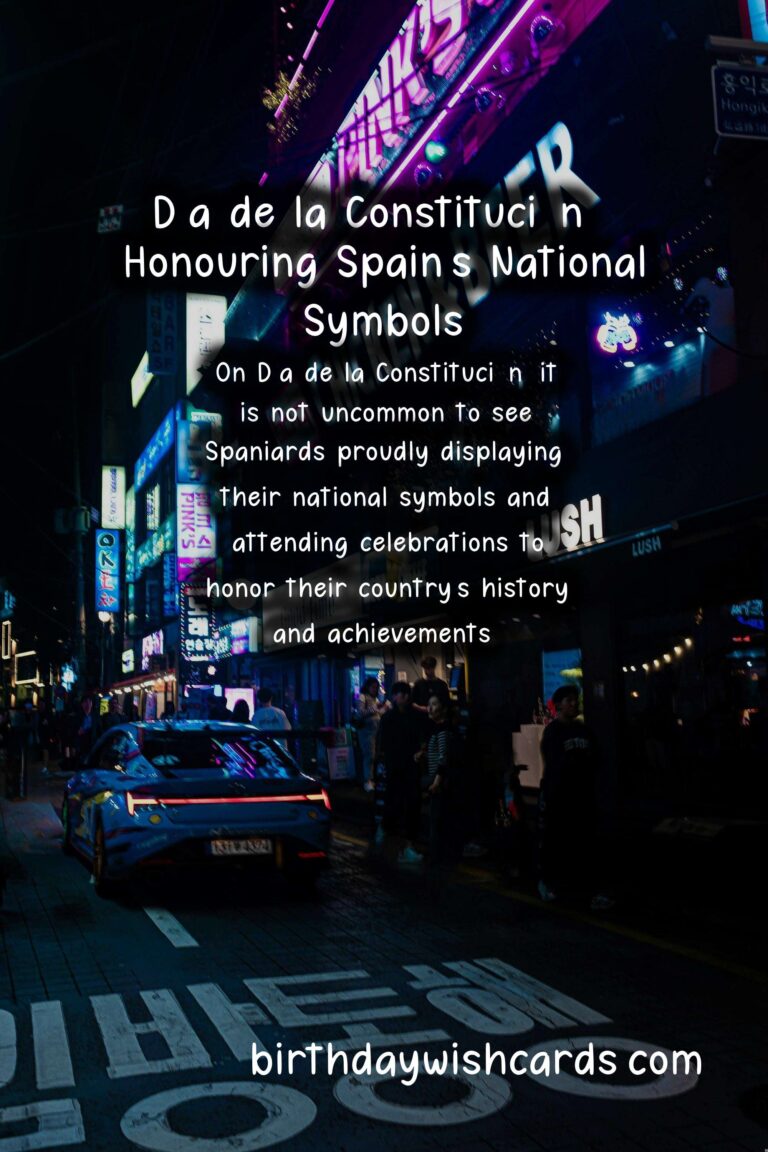
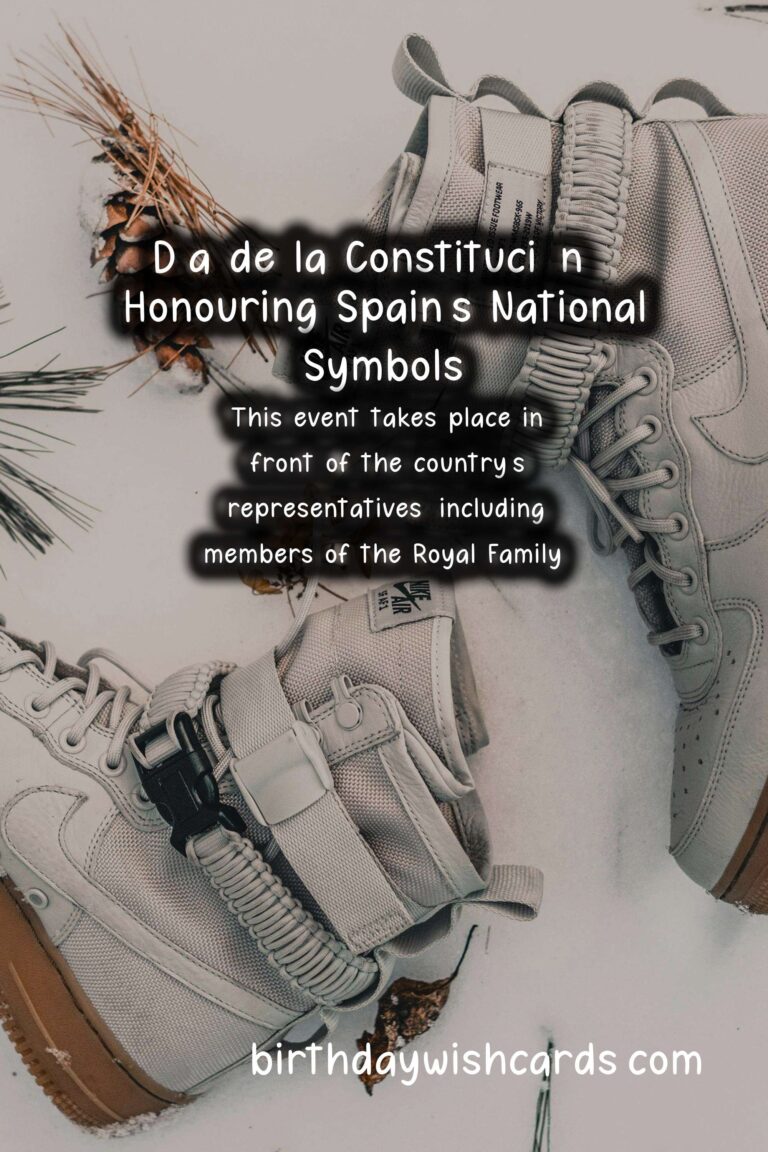

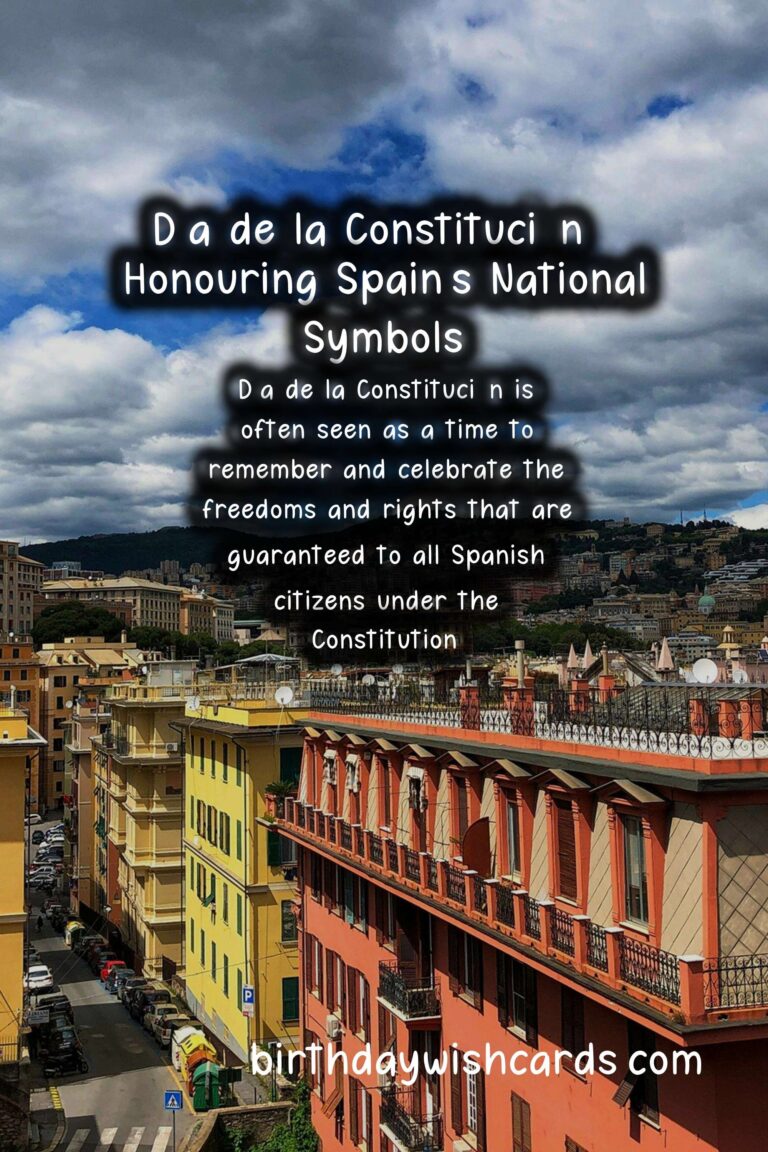
ón




